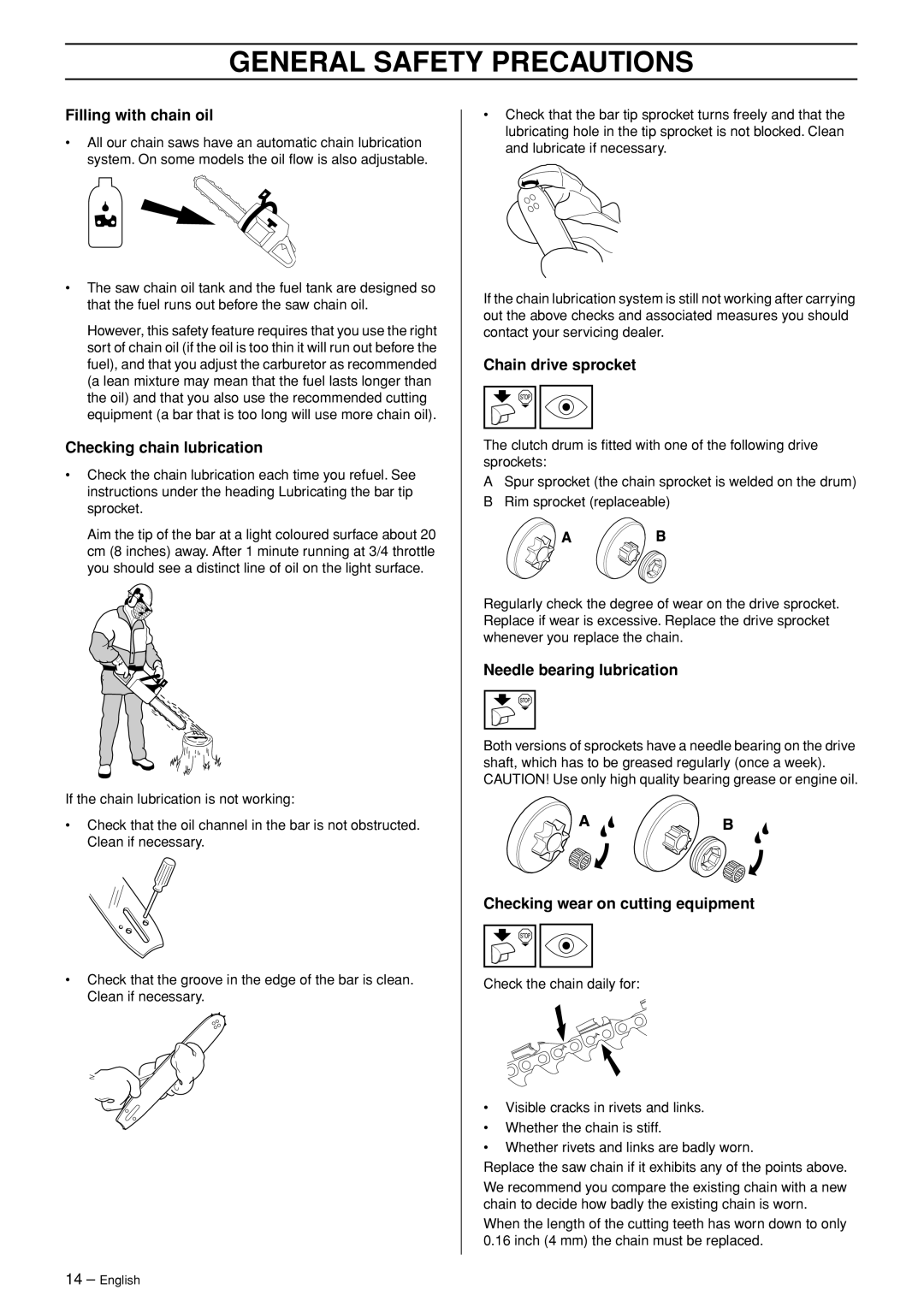
GENERAL SAFETY PRECAUTIONS
Filling with chain oil
•All our chain saws have an automatic chain lubrication system. On some models the oil flow is also adjustable.
•The saw chain oil tank and the fuel tank are designed so that the fuel runs out before the saw chain oil.
However, this safety feature requires that you use the right sort of chain oil (if the oil is too thin it will run out before the fuel), and that you adjust the carburetor as recommended (a lean mixture may mean that the fuel lasts longer than the oil) and that you also use the recommended cutting equipment (a bar that is too long will use more chain oil).
Checking chain lubrication
•Check the chain lubrication each time you refuel. See instructions under the heading Lubricating the bar tip sprocket.
Aim the tip of the bar at a light coloured surface about 20 cm (8 inches) away. After 1 minute running at 3/4 throttle you should see a distinct line of oil on the light surface.
If the chain lubrication is not working:
•Check that the oil channel in the bar is not obstructed. Clean if necessary.
•Check that the groove in the edge of the bar is clean. Clean if necessary.
•Check that the bar tip sprocket turns freely and that the lubricating hole in the tip sprocket is not blocked. Clean and lubricate if necessary.
If the chain lubrication system is still not working after carrying out the above checks and associated measures you should contact your servicing dealer.
Chain drive sprocket
The clutch drum is fitted with one of the following drive sprockets:
ASpur sprocket (the chain sprocket is welded on the drum)
BRim sprocket (replaceable)
Regularly check the degree of wear on the drive sprocket. Replace if wear is excessive. Replace the drive sprocket whenever you replace the chain.
Needle bearing lubrication
Both versions of sprockets have a needle bearing on the drive shaft, which has to be greased regularly (once a week). CAUTION! Use only high quality bearing grease or engine oil.
Checking wear on cutting equipment
Check the chain daily for:
•Visible cracks in rivets and links.
•Whether the chain is stiff.
•Whether rivets and links are badly worn.
Replace the saw chain if it exhibits any of the points above. We recommend you compare the existing chain with a new chain to decide how badly the existing chain is worn.
When the length of the cutting teeth has worn down to only 0.16 inch (4 mm) the chain must be replaced.
14 – English
